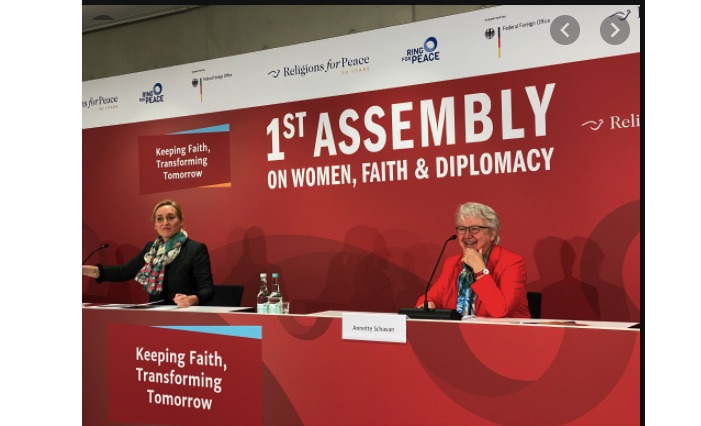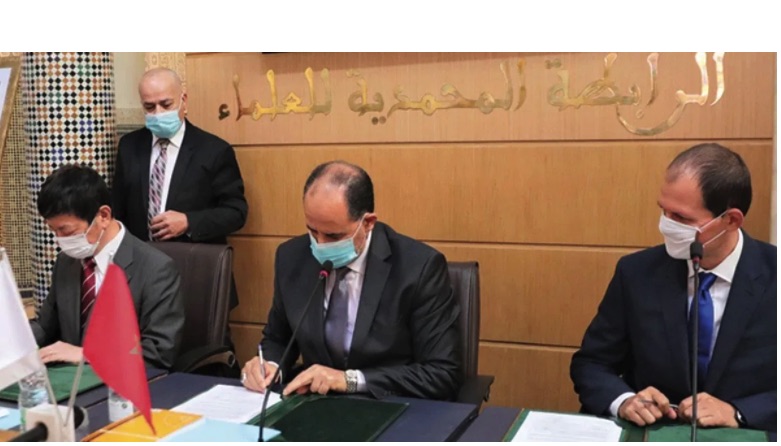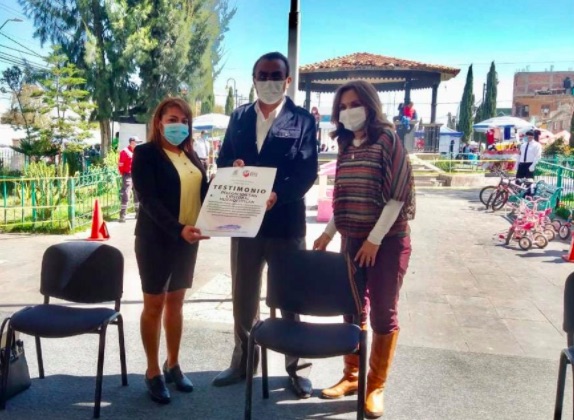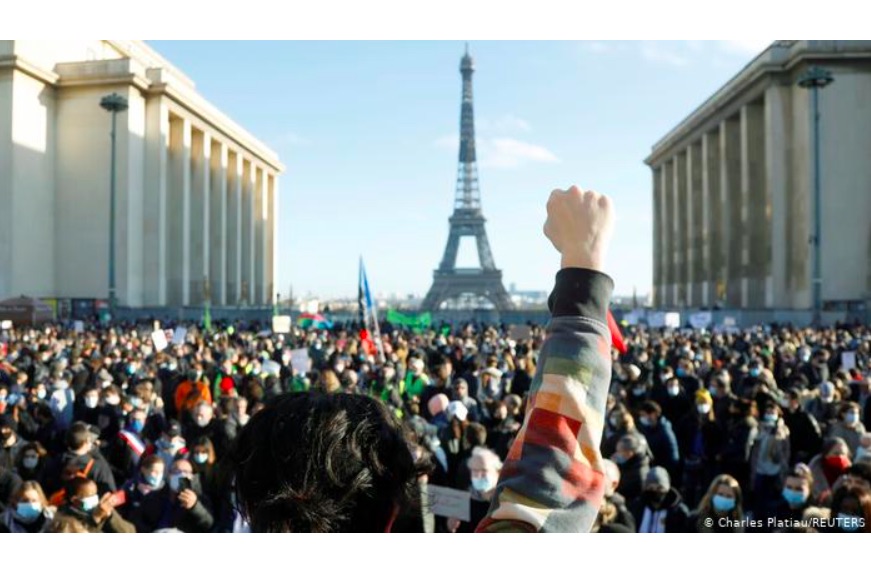FREE FLOW OF INFORMATION
Here are events from November 27 that were previously listed on the CPNN page for upcoming virtual events. Unless otherwise noted the events are in English.
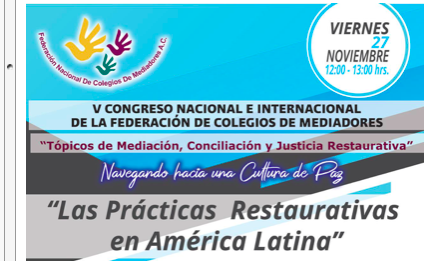
November 27 [in Spanish]
“V National and International Congress of the Federación Nacional De Colegios De Mediadores A.C”.
“Tópicos de Mediación, Conciliación y Justicia Restaurativa: Navegando hacia una Cultura de Paz”.
— El taller de 12: 00-13: 00 hrs (hora en la Ciudad de México) hablará sobre “Las Prácticas Restaurativas en América Latina”
— Para participar, complete el formulario en https://forms.gle/voQJ5z2oiu3AsLzM8
— También puede ver el evento en vivo en la página de Facebook: https://www.facebook.com/Federaci%C3%B3n-Nacional-De-Colegios-De-Mediadores-AC-160451864363494/
Nov 28, 2020
Stop the War Coalition : Prospects for War & Peace After the US Elections
— What does the election of Joe Biden mean for UK foreign policy? On one hand the president-elect has called for an end to US support for the Saudi-led war on Yemen, yet on the other he appears committed to escalating tensions with China. All of which will have major ramifications for British foreign policy. Boris Johnson’s unveiling of a huge military spending increase seems designed to please the new US president and demonstrate that the UK remains a devoted ally.
— As Donald Trump’s tenure comes to an end are we expecting huge shifts in foreign policy or more of the same?
— Join us for this fringe session of the North West Connected conference to discuss all of this and how the anti-war movement can organise against it with:
– Richard Burgon MP
– Lindsey German
– Sarah Cundy (Manchester Momentum Vice Chair)
– Jenny Clegg (Greater Manchester Stop the War)
– Rashida Islam (Greater Manchester Stop the War)
Time : 01:00 PM in London
— Register here
Sunday, Nov. 29, 2:00 – 4:00 PM EST (Toronto Time)
Peace Magazine and Project Save the World Invite You to Our Next Monthly Global Town Hall
— On the last Sunday of every month, we hold an open meeting for activists worldwide who are addressing issues of militarism (especially nuclear weapons), global warming, famine, pandemics, radioactive contamination, and cyber risks. We talk for two hours with our video cameras on (not just audio, please), edit the recording, and put it on YouTube, Facebook, and our website: https://tosavetheworld.ca Then we publicize it widely. Everyone is welcome. There is no agenda, but this time I hope we will have a good discussion about the many risks to democracy today, especially as we see in elections.
— Register here
Mon 30 Nov – 18:30 London time
Foreign Policy After the US Election w/ Jeremy Corbyn –
Join Jeremy Corbyn on Monday to discuss the significance of the US election results on UK foreign policy.
— The election of Joe Biden has been met with a sense of relief but with a team of right-wing Democrats behind him, along with a largely republican senate, the prospects for a progressive US foreign policy look bleak. Meanwhile, Boris Johnson’s unveiling of a huge military spending increase is designed to please the new US president and demonstrate that the UK remains a devoted ally.
— As Donald Trump’s tenure comes to an end, are we expecting huge shifts in foreign policy or more of the same? Join us to discuss the future of the so-called ‘special relationship’ with the former Labour Leader and Stop the War Chair.
— Click Here to Register
Lundi 30 novembre à 18h30 (French time – in French)
A l’occasion de la Journée internationale de solidarité avec le peuple palestinien, l’AFPS, la CGT, EELV, GDS, l’intergroupe parlementaire de la FI, le MJCF, la LDH, Le Mouvement de la Paix, le MRAP, le PCF, la plateforme des ONG françaises pour la Palestine, R&S, UAVJ, l’UNEF et l’UEC organisent un webmeeting en direct sur Zoom le lundi 30 novembre 2020 de 18h30 à 20h30.
— Avec :
Majed BAMYA, représentant de la Palestine à l’ONU,
Aïda TOUMA-SLIMAN, députée de la Joint List à la Knesset,
Sahar FRANCIS, directrice d’Addameer Prisoner Support & Human Rights Association,
Zakaria ODEH, coordonnateur de la Coalition civique pour les droits des Palestinien.ne.s à Jérusalem,
Wajeh ABU ZAREFAH, professeur de Science Politique et analyste politique pour Alshabaka, The palestinian policy network (Gaza),
ainsi que des représentant-e-s de la campagne de Résistance non-violente, des réfugiés palestiniens, et de Btselem (centre israélien d’information pour les droits de l’homme dans les territoires occupés).
— Rejoindre la conférence avec Zoom ici.
Dec 1, 2020 18:30 PM in London
Students say No to War on Yemen
The war in Yemen has entered its sixth, devastating year. Over 100,000 people have died and millions are the brink of famine. The British Government is complicit in this war; over £5 billion worth of arms have been sold to the Saudi coalition since the start of the war and RAF personnel have maintained Saudi planes and directed the bombings. Stop the War Coalition, alongside organisations around the world, has called a global day of action against the war on Yemen on 25th January 2021. Students have played a major role in fighting against British involvement in the war, organising protests across the country over the summer, and will have a vital role in building the day of action. Join us to discuss how we can take action on the 25th January and end the war on Yemen.
— Speakers (tbc):
Lucy Nichols, Stop the War
Malak Mayet, Campaign Against the Arms Trade
Adhiyan Jeevathol, London Students for Yemen
Lamar Campbell, Young Labour International Representative
Hasan Patel, Young Labour Under 18’s Representative
Register here

